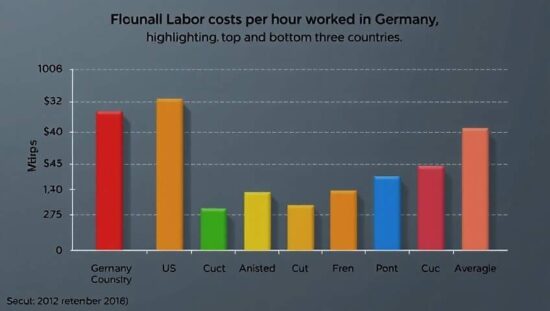In 2024, German businesses in the manufacturing and service sectors paid an average of 43.40 euros for a worked hour. According to the Federal Statistical Office (Destatis), this made Germany’s labor costs the seventh-highest in the European Union (EU-27). Compared to the EU average of 33.50 euros, German employers paid around 30 percent more for an hour of work. The relative distance from the EU average remained almost unchanged since 2022.
The hourly labor costs vary significantly across the EU. In 2024, the highest hourly labor costs were paid in Luxembourg (55.20 euros), Denmark (50.10 euros) and Belgium (48.20 euros). The countries with the lowest labor costs were Hungary (14.10 euros), Romania (12.50 euros) and Bulgaria (10.60 euros).
In the manufacturing sector, a worked hour cost on average 48.30 euros in 2024, around 43 percent more than the EU average (33.70 euros). Germany’s labor costs in this sector were the fourth-highest in the EU.
For market-determined services, labor costs in Germany were on average 42.10 euros per hour, around 26 percent more expensive than the EU average (33.30 euros). Germany ranked seventh in the EU in this category.
The highest percentage increases in labor costs were observed in Poland (+19.0 percent), Croatia (+14.2 percent), Bulgaria (+13.9 percent) and Romania (+13.5 percent) in 2024. In Czech Republic (+1.3 percent), Finland (+1.8 percent), Luxembourg (+2.1 percent) and Belgium (+2.4 percent), the increases were the weakest. In Germany, the increase of +5.0 percent matched the EU average.





